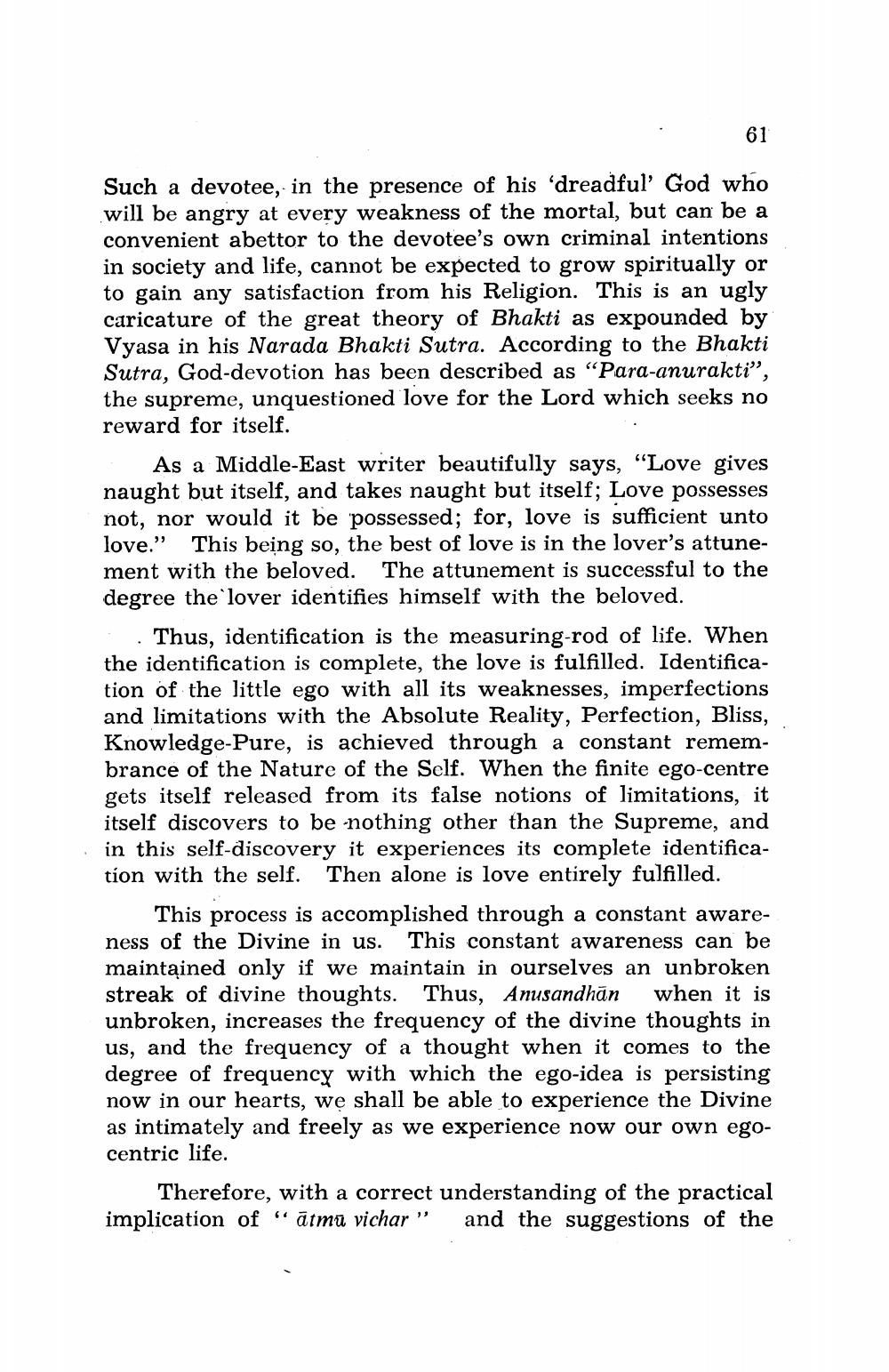________________
61
Such a devotee, in the presence of his dreadful God who will be angry at every weakness of the mortal, but can be a convenient abettor to the devotee's own criminal intentions in society and life, cannot be expected to grow spiritually or to gain any satisfaction from his Religion. This is an ugly caricature of the great theory of Bhakti as expounded by Vyasa in his Narada Bhakti Sutra. According to the Bhakti Sutra, God-devotion has been described as "Para-anurakti”, the supreme, unquestioned love for the Lord which seeks no reward for itself.
As a Middle-East writer beautifully says, “Love gives naught but itself, and takes naught but itself; Love possesses not, nor would it be possessed; for, love is sufficient unto love." This being so, the best of love is in the lover's attunement with the beloved. The attunement is successful to the degree the lover identifies himself with the beloved.
Thus, identification is the measuring-rod of life. When the identification is complete, the love is fulfilled. Identification of the little ego with all its weaknesses, imperfections and limitations with the Absolute Reality, Perfection, Bliss, Knowledge-Pure, is achieved through a constant remembrance of the Nature of the Self. When the finite ego-centre gets itself released from its false notions of limitations, it itself discovers to be nothing other than the Supreme, and in this self-discovery it experiences its complete identificatíon with the self. Then alone is love entirely fulfilled.
This process is accomplished through a constant awareness of the Divine in us. This constant awareness can be maintained only if we maintain in ourselves an unbroken streak of divine thoughts. Thus, Anusandhan when it is unbroken, increases the frequency of the divine thoughts in us, and the frequency of a thought when it comes to the degree of frequency with which the ego-idea is persisting now in our hearts, we shall be able to experience the Divine as intimately and freely as we experience now our own egocentric life.
Therefore, with a correct understanding of the practical implication of “ātmu vichar" and the suggestions of the




